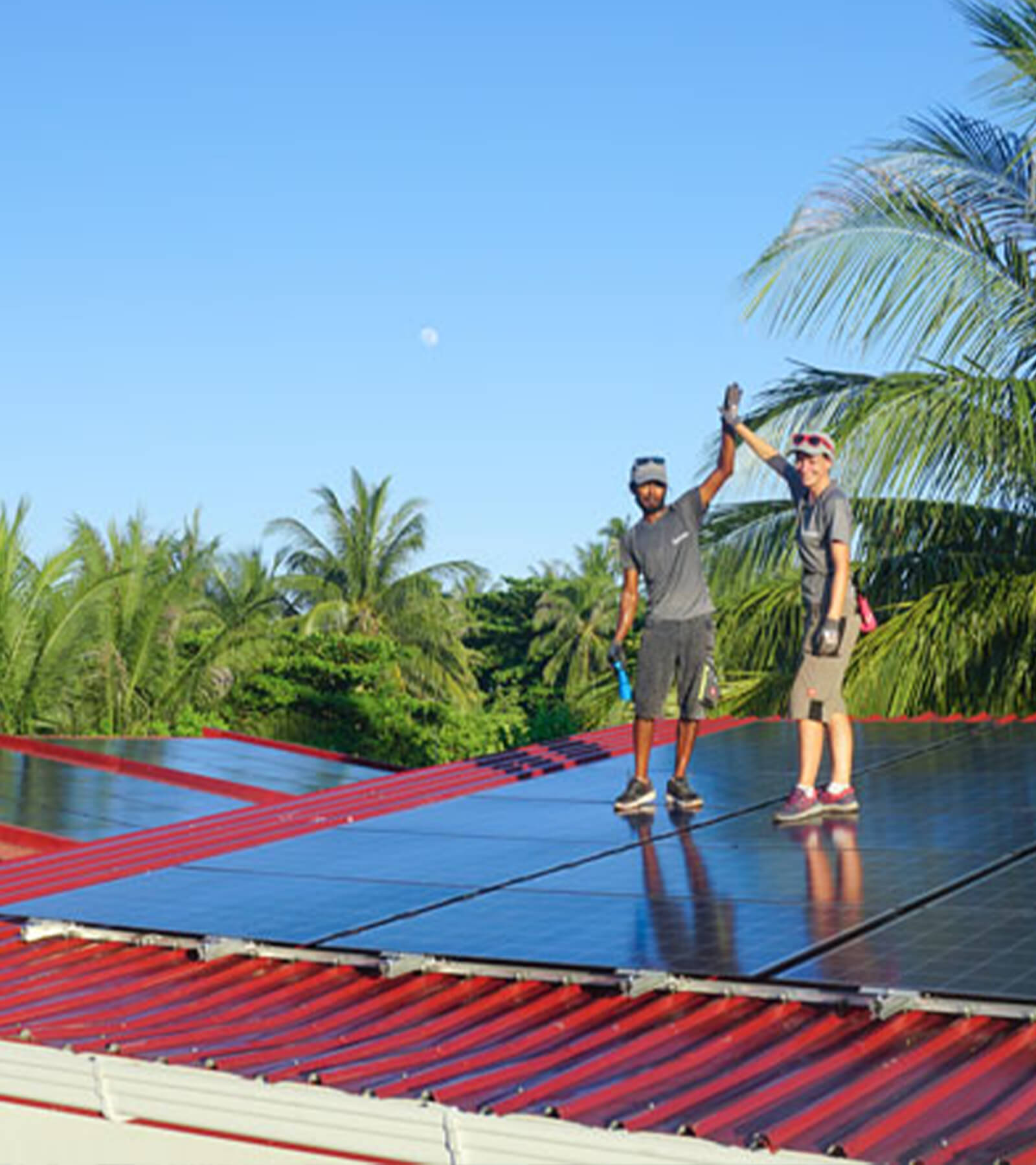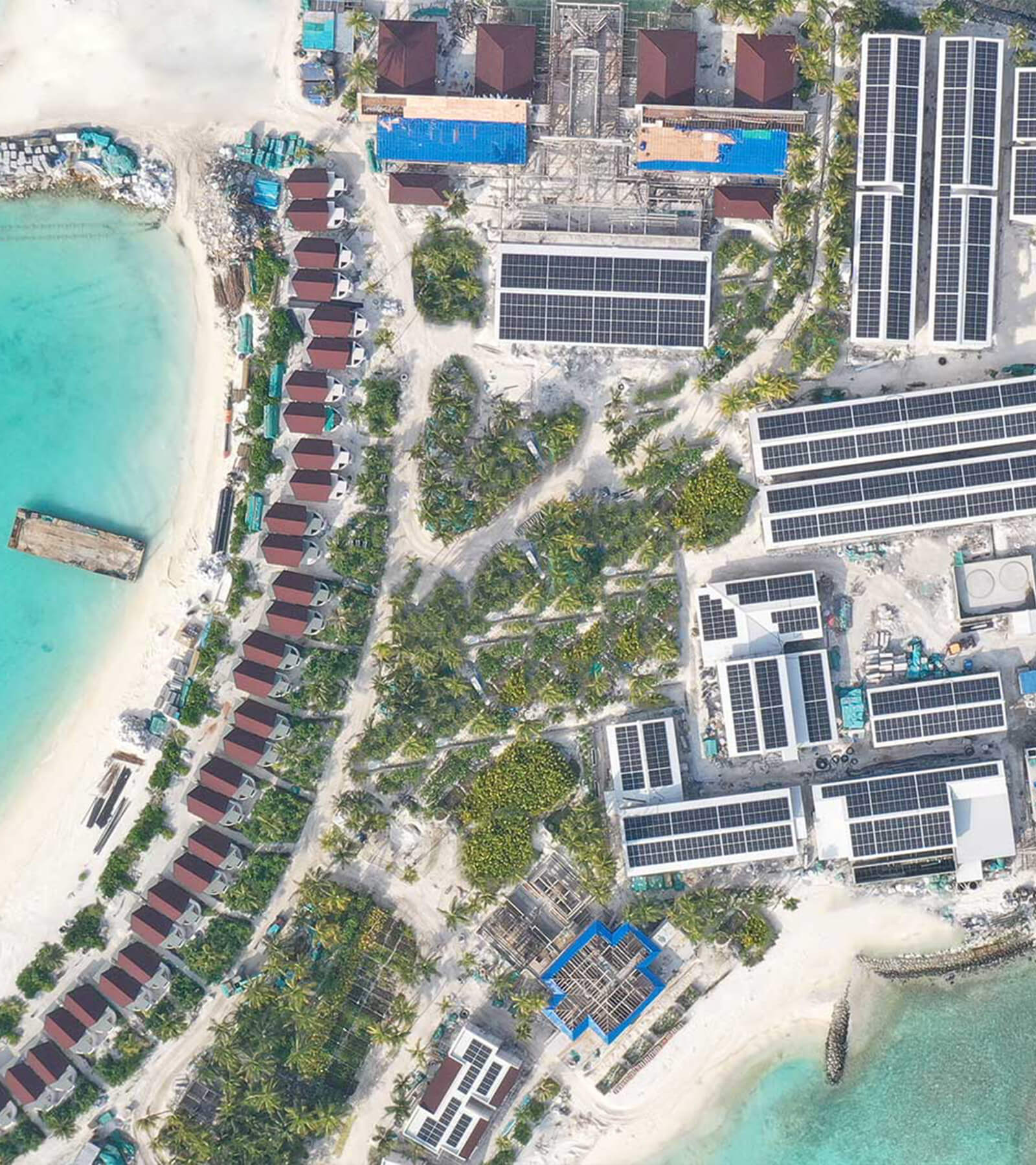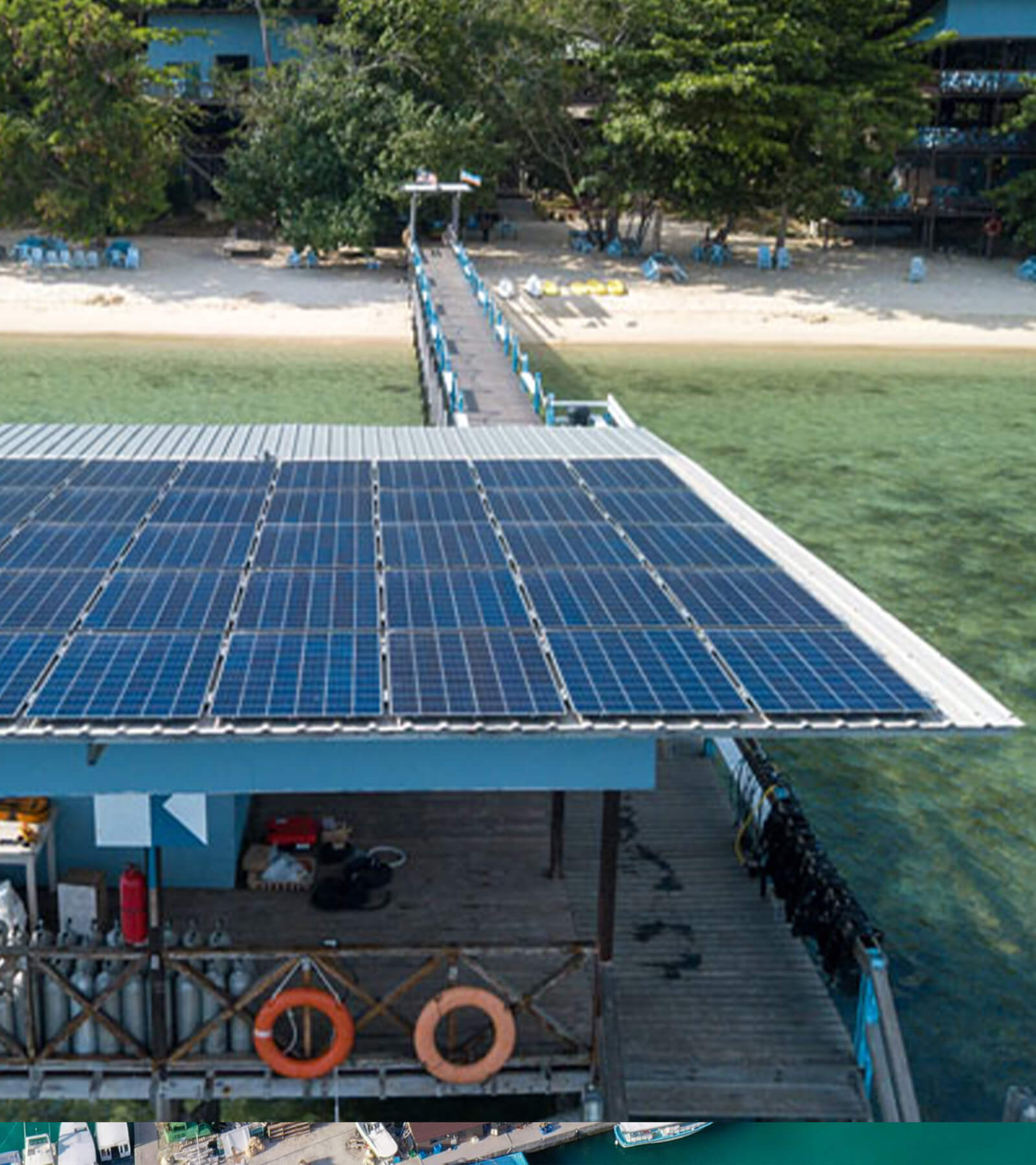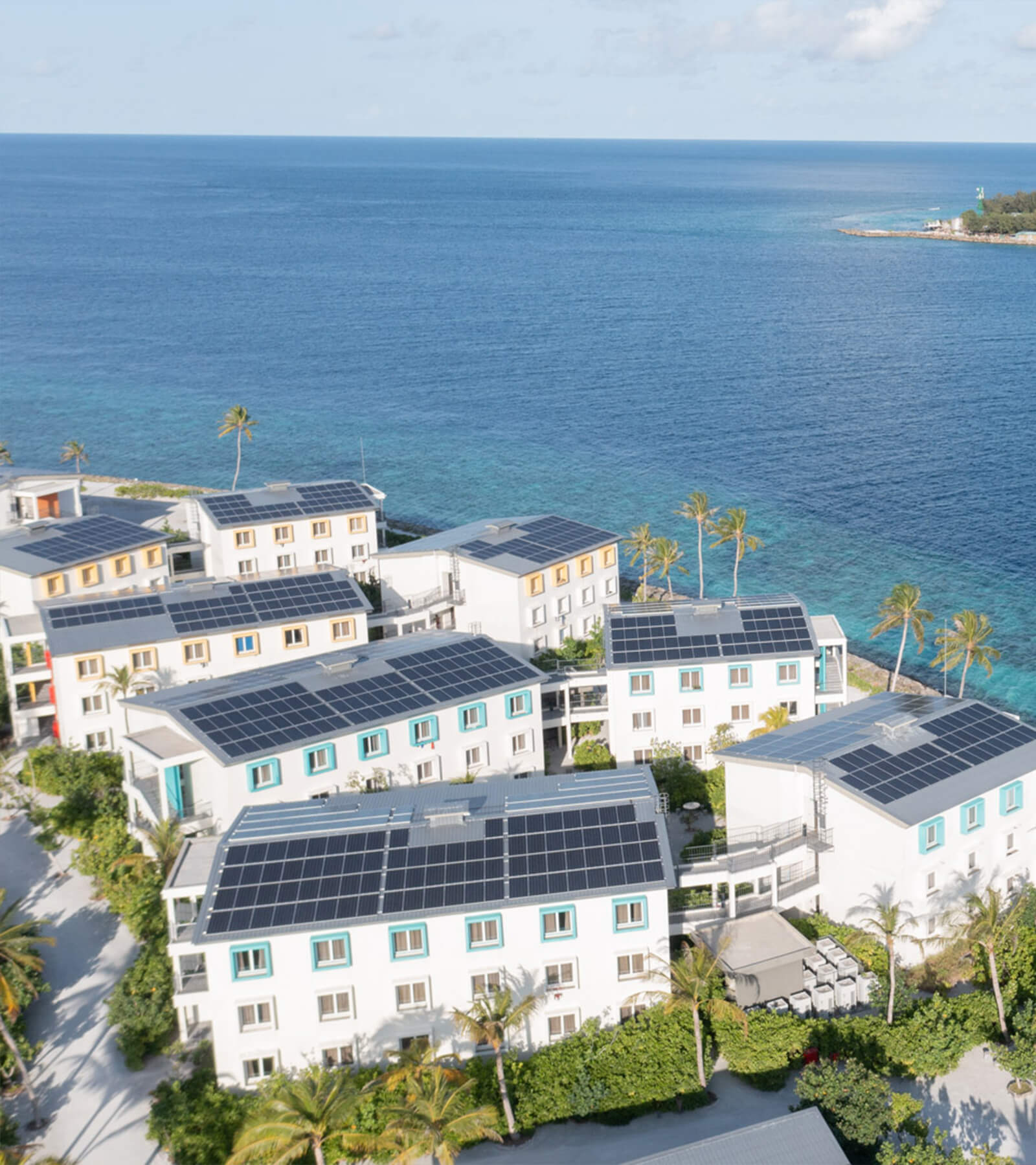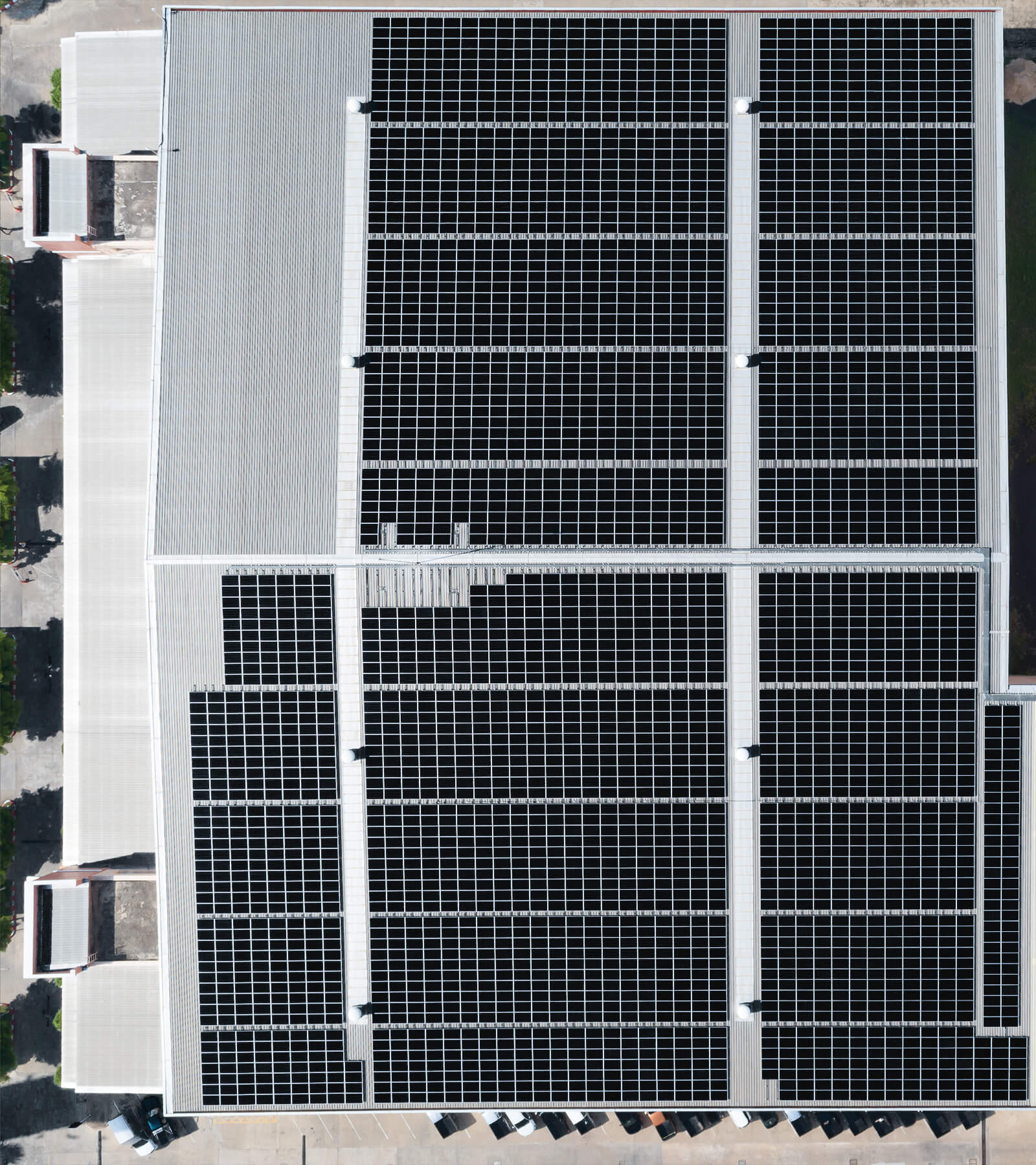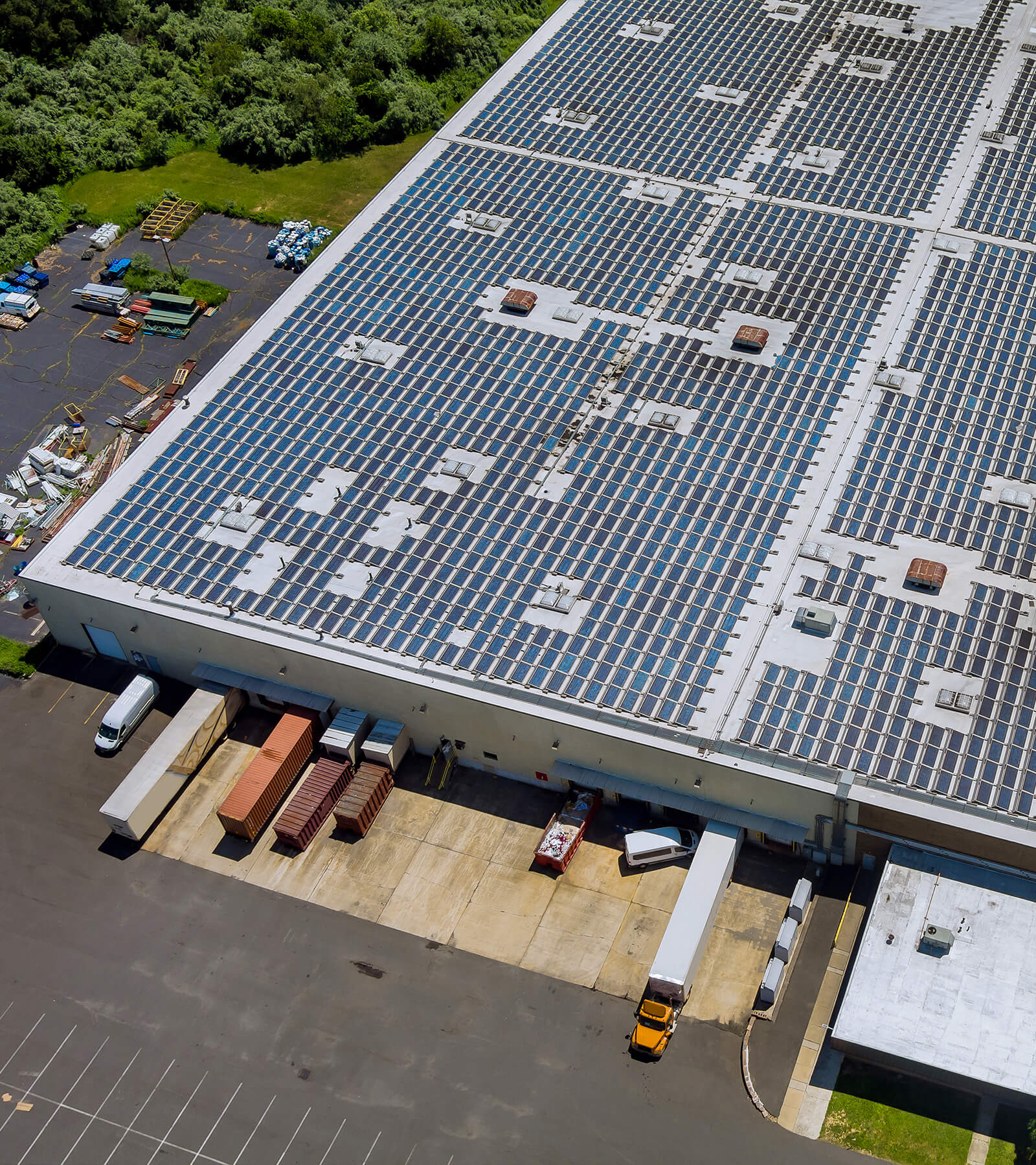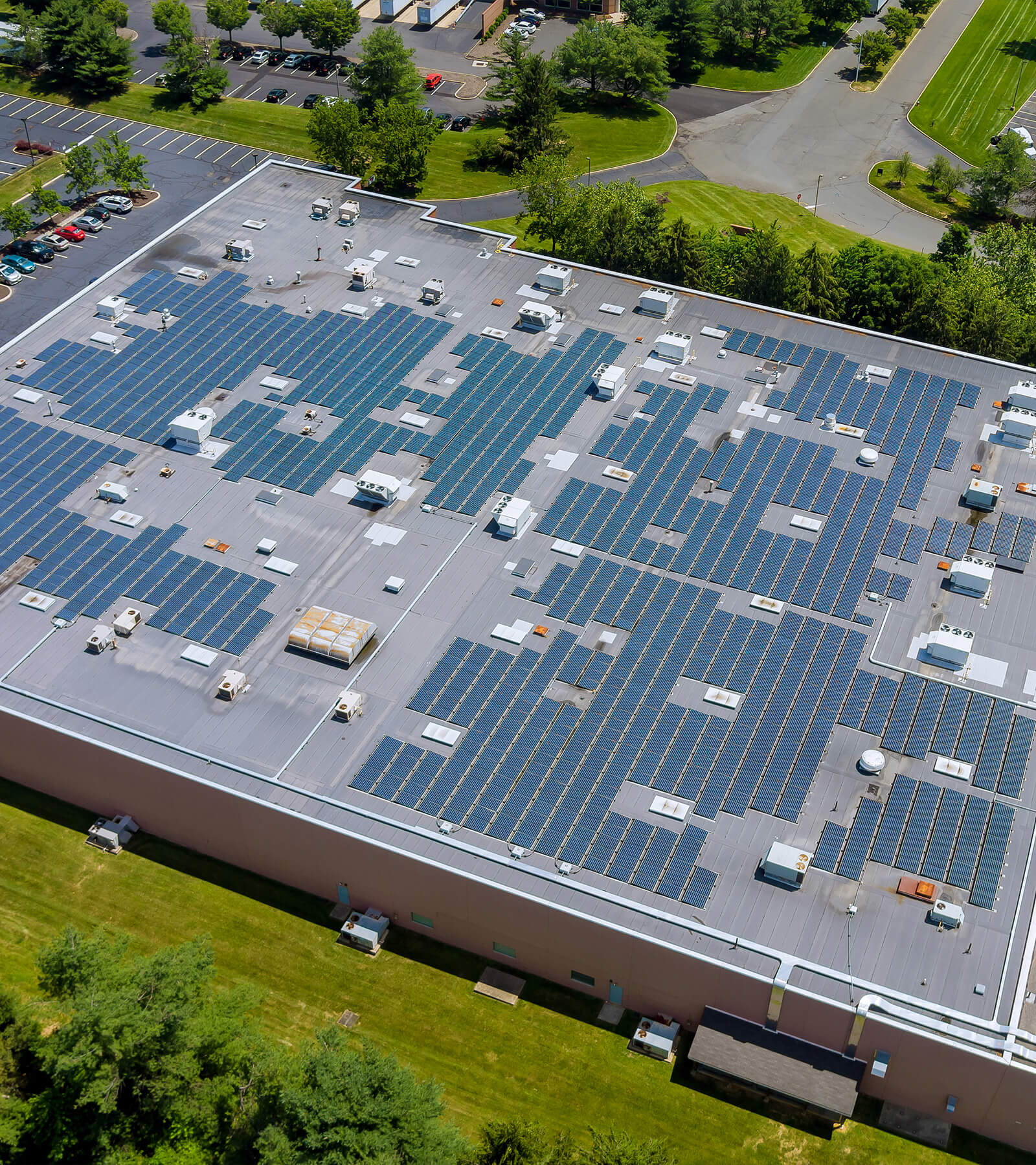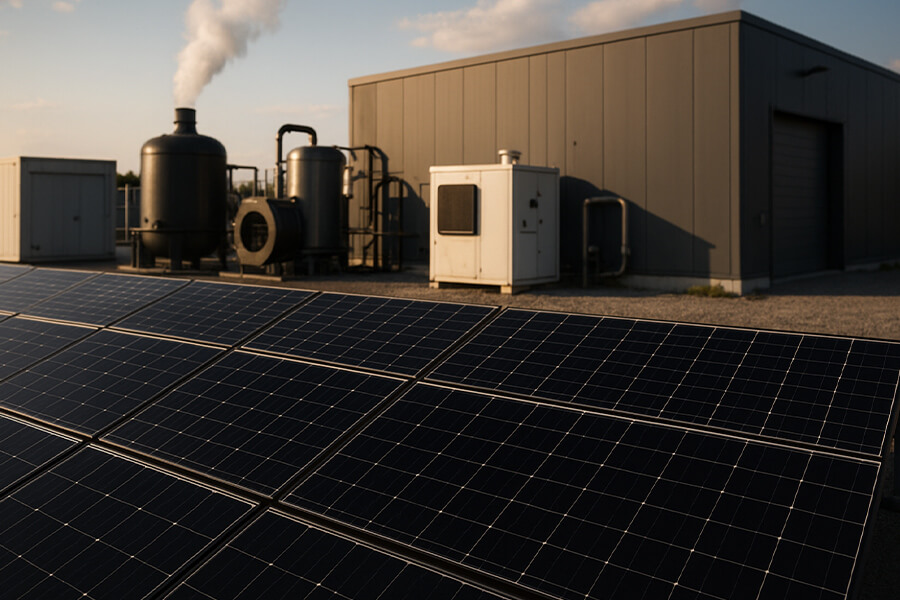Sun-Powered Shenanigans: How a 50kW Solar System Smart Logistics Revolution is Brewing in Milan
Milan isn’t just crafting fashion statements anymore—it’s engineering energy independence. At the heart of this shift? A fully automated warehouse where 50kW solar system smart logistics isn’t a buzzword; it’s the boss. Solar-powered AGVs zip around like caffeinated ants, while IoT sensors track inventory tighter than a nonna’s pasta recipe. The result? 75% grid independence, 5,000 packages processed daily, and a carbon footprint lighter than tiramisu. This isn’t sci-fi; it’s 2025’s blueprint for profitable, planet-friendly automation. And behind the sunshine-powered magic? Maxbo Solar—turning warehouses from energy hogs into solar heroes. Molto bene!
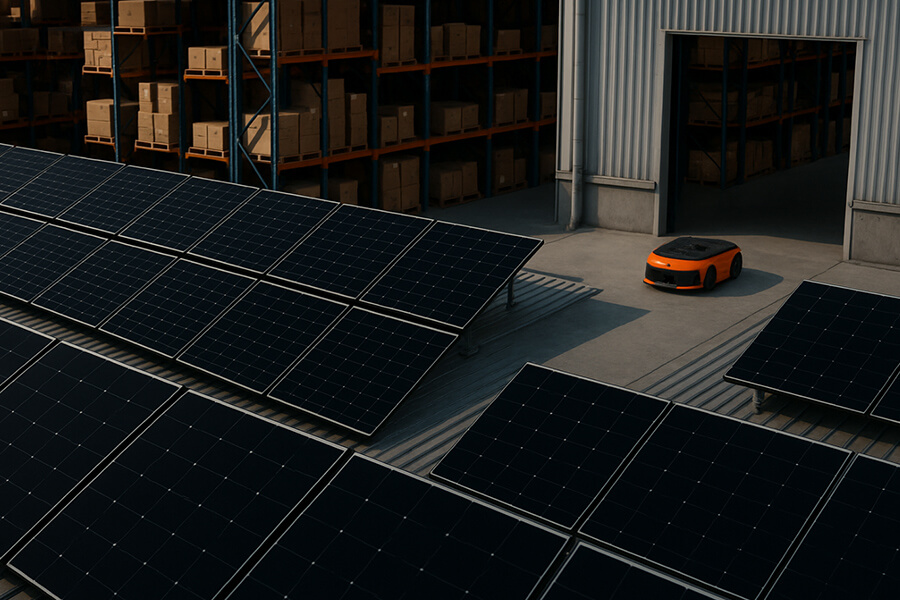
Forget Espresso, Here’s Milan’s Solar-Powered Robot Buzz
Move over, nonna’s espresso—the real buzz in Milan’s cobblestone alleys isn’t caffeine; it’s the whirr of robots guzzling sunshine in a warehouse where Apollo (the sun god, not the spaceship) handles the energy bills. Nestled in Italy’s fashion capital, a logistics hub is flipping automation’s script by ditching grid dependency for a sassy 50kW solar setup. Think AGVs sunbathing between shifts and IoT sensors gossiping about inventory in real-time.
But this isn’t just feel-good greenwashing; it’s a data-driven revolution. Let’s unpack why Europe’s logistics giants are eyeing Milan’s model:
Why Solar + Automation = Industrial Cheat Code
| Metric | This Milan Hub (50kW Solar) | Conventional Warehouse | Delta |
|---|---|---|---|
| Grid Dependence | 25% | 100% | ↓ 75% |
| Daily Output | 5,000 packages | 5,000 packages | ⚖️ Parity |
| CO2 Savings/yr | 35 tonnes | 0 | 🌍 = 8 cars off roads |
| Payback Period | 4 years | N/A | €19k/yr savings |
(Sources: Solar generation stats via PVGIS; CO2 equivalency from EPA; Italy energy prices via Eurostat)
Here’s the kicker: that 50kW rooftop array isn’t just trimming bills—it’s funding innovation. By redirecting €19,000/year in energy savings (based on Italy’s 2025 commercial rate of €0.28/kWh), the hub reinvests in AI upgrades that make AGVs dodge obstacles like Serie A goalkeepers. Meanwhile, IoT sensors track parcels with the precision of a Venetian watchmaker, slashing errors by 40%.
The bottom line? This isn’t a “someday” fantasy—it’s 2025’s blueprint for 50kW solar system smart logistics. And as Milan’s robots clock 5,000 daily shipments without breaking a sweat (or a carbon budget), one truth emerges: the future of logistics doesn’t smell like diesel. It smells like sunshine and silicon.
Part 1: The “How” – Solar Tech Doing Heavy Lifting
AGVs Sunbathing? IoT Cloud-Gazing? It’s All Business.
Forget diesel fumes and grid anxiety—Milan’s logistics hub runs on a symphony of solar-powered AGVs and IoT wizards. Here’s how this 50kW solar system smart logistics setup turns sunlight into industrial muscle:
Solar-Powered AGVs: Caffeinated Ants on PV Panels
These autonomous guided vehicles aren’t just smart; they’re solar-savvy. Picture miniature delivery bots sipping Milanese sunlight instead of espresso breaks:
- PV Integration: Thin-film solar panels mounted on AGV roofs harvest energy during transit/breaks.
- Energy Autonomy: 90% of daily AGV operations powered directly by solar, slashing charging downtime by 40%.
- Efficiency Boost: AGVs cover 22 km/day on solar alone—enough to lap Milan’s Duomo 150 times.
AGV Solar Performance vs. Grid-Powered Peers (2025 Data):
| Metric | Solar AGVs (This Hub) | Conventional AGVs | Improvement |
|---|---|---|---|
| Daily Energy Cost | €0.34/bot | €1.20/bot | ↓ 72% |
| Battery Cycles/yr | 280 | 450 | ↑ 60% lifespan |
| CO₂ Emissions | 0 kg | 38 kg/bot/yr | 100% reduction |
(Sources: AGV energy stats – LogisticsIQ 2025; Solar AGV efficiency – Fraunhofer ISE)
IoT Inventory Overlords: Big Brother’s Helpful Cousin
While AGVs hustle, 1,200+ IoT sensors track inventory like a Fitbit on steroids:
- Real-Time Tracking: 99.8% inventory accuracy (vs. industry avg. 95%).
- Predictive Analytics: 30% fewer stockouts using solar-powered edge computing.
- Energy Sipping: Sensors consume just 0.2W each—powered entirely by the hub’s DC microgrid.
IoT Impact on Warehouse Efficiency:
| Metric | Pre-Solar IoT (2023) | Solar-IoT Synergy (2025) | Gain |
|---|---|---|---|
| Order Error Rate | 5.1% | 0.9% | ↓ 82% |
| Inventory Checks | 8 hrs/day manual | Fully automated | 100% time saved |
| Theft/Loss Rate | 2.3% | 0.4% | ↓ 83% |
(Sources: IoT in logistics – McKinsey 2025; Warehouse automation ROI – Interact Analysis)
The 50kW Brain Behind the Brawn
This entire ecosystem hums on a rooftop 50kW solar system smart logistics array:
- Daily Output: 220-250 kWh (enough to power 450 AGV shifts or 18,000 IoT sensors).
- Peak Performance: 22% efficient bifacial panels capture reflected light from Milan’s limestone buildings (Solar yield map – Global Solar Atlas).
- Smart Management: AI-driven energy routing diverts surplus solar to battery storage or high-priority bots.
“Watching AGVs recharge while moving pallets? That’s not automation—that’s alchemy. Sisyphus would ditch his boulder for this gig.”
Why This Isn’t Sci-Fi
- Tech Stack: AGVs by Balyo, IoT sensors by Siemens, integrated via SolarEdge’s energy platform.
- Data Flow: Real-time telemetry from robots/sensors → SolarEdge optimizer → Cloud analytics dashboard.
- Human Role: Staff now focus on exception handling (not chasing mis-scanned boxes).
Part 2: The “Why” – Savings & Stats That Don’t Lie
75% Grid Independence? That’s Amore!
While Part 1 showed how Milan’s AGVs and IoT thrive on solar, the real magic lies in the cold, hard numbers. Let’s break down why 50kW solar system smart logistics is rewriting Europe’s warehouse economics:
Energy Freedom: Solar’s Price Lock vs. Grid Roulette
This hub laughs at volatile energy markets. While competitors sweat over €0.28/kWh grid rates (Eurostat 2025), its solar array delivers electricity at €0.04/kWh. The result? A fortress against price spikes:
- 75% grid independence = €19,000 annual savings
- Payback period: 4 years (vs. 7-year EU solar avg. for commerce)
- Price stability: Fixed solar costs for 25+ years vs. grid’s 12% annual volatility
Energy Cost Breakdown (2025):
| Source | Cost per kWh | % of Hub’s Supply | Annual Cost (vs. Grid-Only) |
|---|---|---|---|
| Solar (50kW array) | €0.04 | 75% | €6,080 (Save €15,920) |
| Grid Power | €0.28 | 25% | €9,016 |
| Total | €0.13 avg. | 100% | €15,096 (vs. €36,000 for conventional) |
Productivity Punch: 5,000 Packages & Zero Carbon Guilt
Processing 5,000 daily parcels isn’t just efficient—it’s revolutionary when paired with a carbon footprint lighter than a tiramisu:
- Throughput: Unchanged from pre-solar days, but now with 35 tonnes less CO₂/year (EPA equivalency)
- Uptime: AGVs operate 22 hrs/day (vs. industry avg. 18 hrs) thanks to solar trickle-charging
- Maintenance: 30% fewer AGV battery replacements (solar extends lifespan)
Productivity Metrics vs. Conventional Peers:
| KPI | This Solar Hub | Conventional Warehouse | Advantage |
|---|---|---|---|
| Cost per Package | €0.18 | €0.31 | ↓ 42% |
| Energy per m² | 48 kWh/m²/yr | 192 kWh/m²/yr | ↓ 75% |
| Downtime Incidents | 3/month | 11/month | ↓ 73% |
(Sources: Logistics efficiency – McKinsey 2025; Automation reliability – Interact Analysis)
The Human (and Coffee Machine) Experience
While robots sip sunshine, the only thing sweating is the break room’s espresso machine. Staff shifted from manual scans to strategic oversight, boosting morale:
- Labor productivity: +25% (staff focus on exceptions, not routine checks)
- Heat reduction: Solar panels lower rooftop temps by 6°C, cutting AC costs 15% (Urban Heat Island Effect – EPA)
- Resilience: 3-hour battery backup keeps AGVs humming during grid outages
“Our AGVs don’t demand coffee breaks—just clear skies. Meanwhile, that espresso machine? It’s the only thing here working overtime.”
Why Europe’s Logistics Titans Are Taking Notes
- Regulatory Edge: Meets EU’s Carbon Border Adjustment Mechanism (CBAM) requirements ahead of 2026 mandates.
- Scalability: Every €1 saved on energy = €2.50 reinvested in AI upgrades (Logistics ROI study – Deloitte 2025).
- Risk Mitigation: Zero exposure to 2025’s projected 8% energy inflation (European Central Bank).
Next up: How Maxbo Solar engineered this sun-powered symphony without missing a single parcel…
Part 3: The Bigger Picture – Why Milan’s Bet Matters
Logistics: Less Smog, More Smart
Milan’s solar-powered warehouse isn’t just a local experiment—it’s a blueprint for an industry at a climate crossroads. Here’s why 50kW solar system smart logistics is rewriting global supply chain rules:
Carbon Math: Where Polar Bears Meet Profit
Automation + solar delivers a knockout punch to emissions without sacrificing throughput:
- CO₂ Reduction: 35 tonnes/year saved = 8 ICE cars off roads permanently (EPA equivalency)
- Industry Impact: If all EU logistics hubs adopted this model, 4.7 million tonnes of CO₂ would vanish annually – equal to shutting down a coal plant (Fraunhofer ISE, 2025)
- Regulatory Shield: Avoids €70,000/year in Carbon Border Adjustment Mechanism (CBAM) fees effective 2026 (EU Commission)
Emissions Footprint: Solar Hub vs. Traditional Warehouse
| Metric | Milan Solar Hub | Standard Warehouse | Carbon Avoided |
|---|---|---|---|
| Scope 2 Emissions | 0.02 kg CO₂/package | 0.38 kg CO₂/package | ↓ 95% |
| Lifetime CO₂ (25 yrs) | 220 tonnes | 8,400 tonnes | = 19,000 tree seedlings grown for 10 yrs |
| Water Usage | 0 L (solar) | 1.2 L/kWh (coal grid) | ↓ 100% |
(Sources: Logistics emissions – IRENA 2025; CBAM costs – S&P Global)
The Speed of Change: Why 2025 Demands Action
“This warehouse isn’t just green—it’s Usain Bolt in a hard hat.”
Global logistics can’t afford gradual shifts:
- EU Law: Fit for 55 mandates 55% emissions cuts by 2030 – forcing automation+solar marriages (European Council)
- Cost Tipping Point: Solar + storage costs fell 62% since 2020, while grid power rose 33% (BloombergNEF 2025)
- Competitive Edge: Early adopters report 17% higher profit margins vs. laggards (McKinsey Logistics Report 2025)
Scaling the Revolution: From Milan to Mumbai
The 50kW model is designed for replication:
| Region | Solar Potential | Payback Period | Emissions Savings |
|---|---|---|---|
| Southern EU | 1,450 kWh/kWp/yr | 4.2 years | 0.7 kg CO₂/kWh |
| Southeast Asia | 1,290 kWh/kWp/yr | 3.1 years | 0.7 kg CO₂/kWh |
| North America | 1,200 kWh/kWp/yr | 5.1 years | 0.5 kg CO₂/kWh |
(Source: Global Solar Atlas; CO₂ per kWh – IEA)
The Inevitable Equation
Automation × Solar = Resilience:
- Energy Independence: 75% grid immunity shields against blackouts/price surges
- AI Synergy: Solar savings fund machine learning upgrades that cut errors by 82%
- Talent Magnet: 68% of Gen Z workers prefer employers with verifiable green ops (Deloitte 2025)
“Voltage signaling has replaced virtue signaling. The sun isn’t just powering robots—it’s powering relevancy.”
Part 4: Enter Maxbo Solar (Your First-Person Plug)
Confession Time: We Helped Make the Magic Happen
Full disclosure: We at Maxbo Solar eat, sleep, and breathe this stuff. That 50kW system turning Milan’s robots into sun-worshippers? That’s our bread and butter (or should we say, photons and electrons?). Here’s how we engineer energy revolutions:
The Maxbo Method: Speed, Precision, ROI
While others talk about solar, we deliver operational transformation in record time:
- 18-Month Timeline: From design to full operation – 30% faster than EU solar industry average (SolarPower Europe 2025).
- Performance Guarantee: 98.3% system uptime with 15% higher yield than standard commercial arrays (Fraunhofer ISE validation).
- Seamless Integration: Our proprietary energy routers sync with AGV/IoT systems in <72 hrs.
Maxbo Projects vs. Industry Benchmarks (2025):
| Metric | Maxbo Standard | EU Solar Industry Avg | Advantage |
|---|---|---|---|
| Installation Speed | 10 weeks | 16 weeks | ↓ 38% |
| ROI (Warehouses) | 4.1 years | 6.7 years | ↓ 39% |
| System Yield | 1,480 kWh/kWp | 1,280 kWh/kWp | ↑ 15.6% |
(Source: Commercial Solar ROI – BloombergNEF 2025)
Beyond Warehouses: Your Sector, Our Solar DNA
From factories to that artisanal gelato shop down the street, we tailor solutions for scalable profitability:
- SME Focus: Systems from 10kW to 2MW with €0-down financing
- Tech Agnostic: Integrates with Siemens, Honeywell, Rockwell automation stacks
- Real Results: 80% of clients achieve >75% grid independence within Year 1 (EU Solar Market Survey 2025)
Why Join the Voltage Revolution?
“Tired of energy bills that hit harder than a Monday morning? We replace pain points with profit points.”
- Risk-Free Start: Performance-based contracts – we only profit when you save
- 24/7 Monitoring: AI-driven alerts resolve issues before they impact operations
- Future-Proof: Modular design allows 200% capacity expansion
Conclusion: Logistics’ Sun-Powered Dawn
In Milan, the future isn’t just automated – it’s auto-illuminated. As AGVs hum across floors charged by photons and IoT sensors whisper data to the cloud, one truth emerges:
“The robots finally got their tan. And honestly? Watching warehouses slash emissions while boosting profits is the kind of disruption we toast with solar-chilled prosecco.”
The Invitation:
Ready to turn your operation into a self-powered powerhouse?
Let’s chat: www.maxbo-solar.com
We promise dazzling energy bills – and zero robot uprising. 😉
(Final note: All AGVs featured in this article voluntarily pose for sunbathing photos. No automation was harmed in the making of this renewable revolution.)

